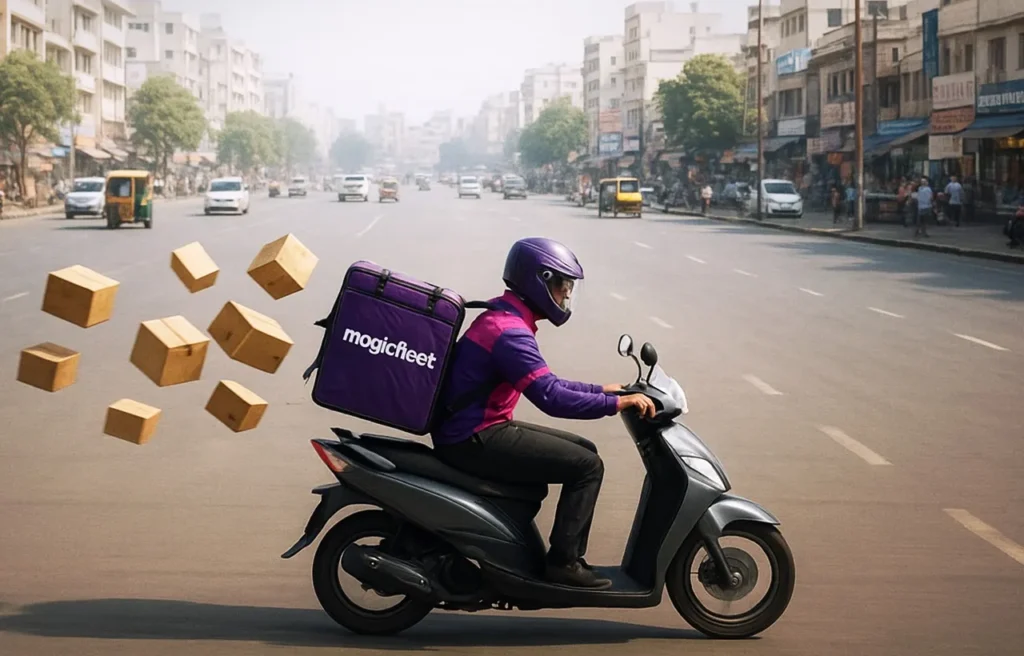MagicFleet, the logistics arm of hyperlocal commerce platform Magicpin, has crossed a key milestone—surpassing one million monthly deliveries less than a year after its launch. The company now aims to double this number to two million by the end of FY26, signaling rapid traction in India’s expanding quick-commerce and delivery infrastructure space.
Launched in September 2024, MagicFleet was conceived as a SaaS-powered logistics platform designed to empower micro and small logistics entrepreneurs. With over 100,000 delivery partners onboarded, the platform is currently active in seven major metros: Delhi NCR, Mumbai, Bengaluru, Pune, Hyderabad, Chennai, and Kolkata.
“We are already among the top three food delivery players in the country, and building logistics capabilities is a natural progression to drive more business to our merchant partners,” said Anshoo Sharma, Co-founder and CEO of Magicpin.
Logistics Infrastructure Built for India’s Neighborhoods
MagicFleet positions itself as a logistics infrastructure layer integrated with the Open Network for Digital Commerce (ONDC) and Magicpin’s in-house demand engine. The model allows local fleet operators—some with as few as 10 delivery personnel—to scale efficiently, tapping into structured demand while retaining operational autonomy.
Currently delivering 1.4 million orders monthly, MagicFleet has entered the ranks of India’s top five hyperlocal logistics players, bolstered by its deep neighborhood penetration and tech-enabled operations.
AI-First Approach with Franchise-Led Execution
The platform’s technological foundation is rooted in artificial intelligence and automation. Key operational features include:
- Smart rider allocation
- Dynamic surge pricing
- Real-time tracking
- End-to-end RTO and CoD support
- Operational visibility for franchise partners
The service also includes a rider companion app that streamlines onboarding, tracking, daily payouts (within 24 working hours), and performance-linked incentives—a critical aspect in ensuring rider satisfaction and retention.
Hyperlocal Density as a Growth Lever
MagicFleet runs on a franchise-led model, with logistics density optimized at the pin-code level. This approach boosts order delivery speed, rider utilization, and neighborhood-level reliability, all of which are essential for meeting the expectations of India’s on-demand economy.
Magicpin views this vertical as more than just a support function. “Logistics is now a revenue enabler,” Sharma emphasized. “By powering quick commerce and high-frequency categories like food and groceries, MagicFleet is unlocking new growth for merchants on our platform.”
Looking Ahead
As India’s quick-commerce segment intensifies with competition from players like Blinkit, Zepto, and Swiggy Instamart, MagicFleet’s scalable, neighborhood-focused model is expected to offer a strategic edge in cost-efficiency and service quality. With plans to double its monthly deliveries by FY26, MagicFleet is betting on technology, local fleet partnerships, and ONDC integration to fuel its next phase of growth.

